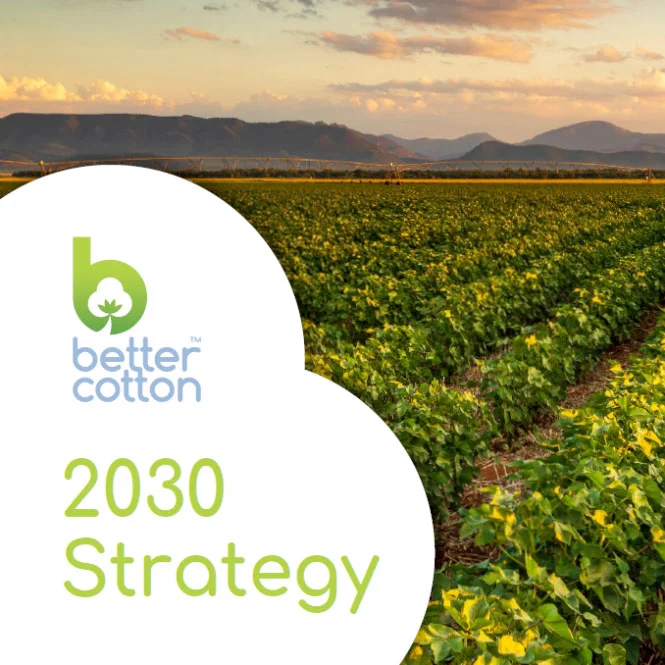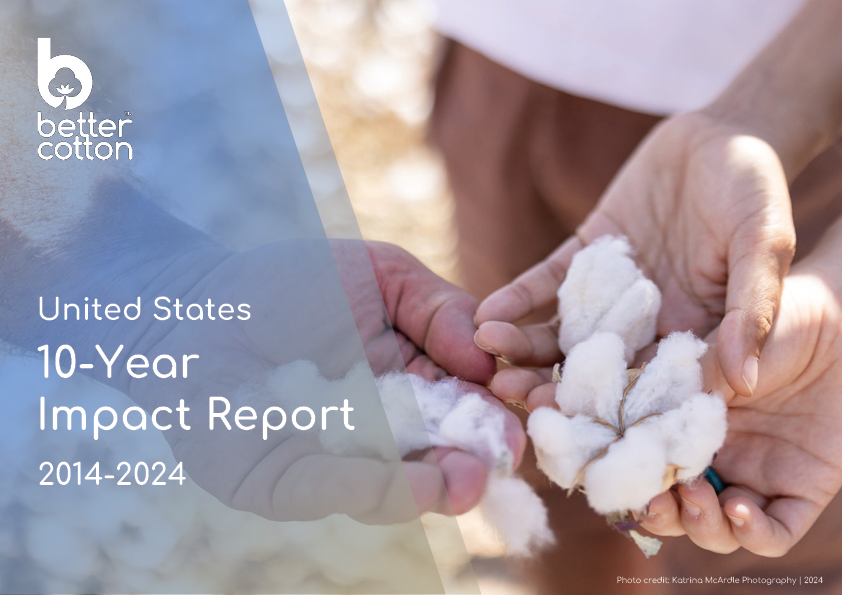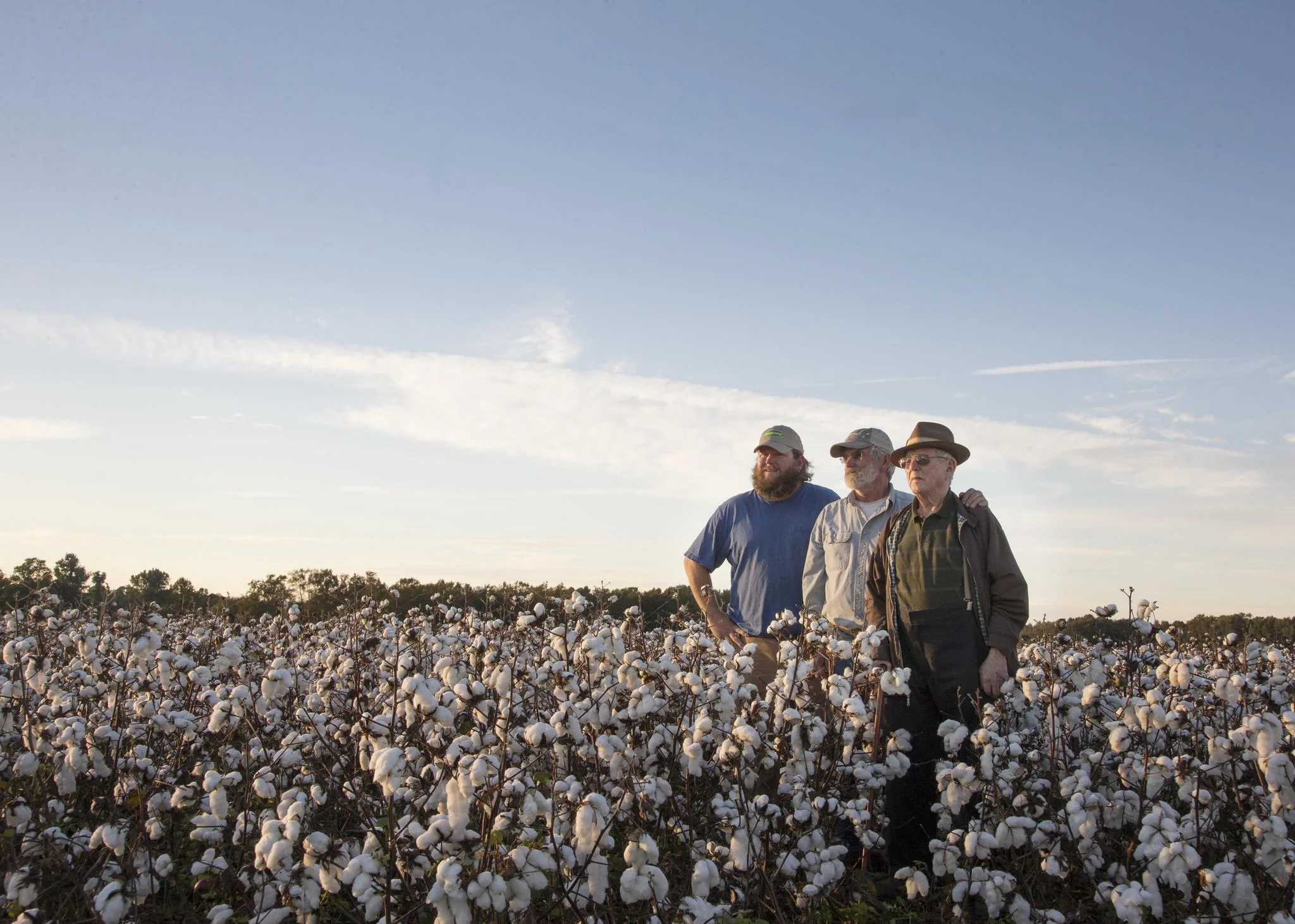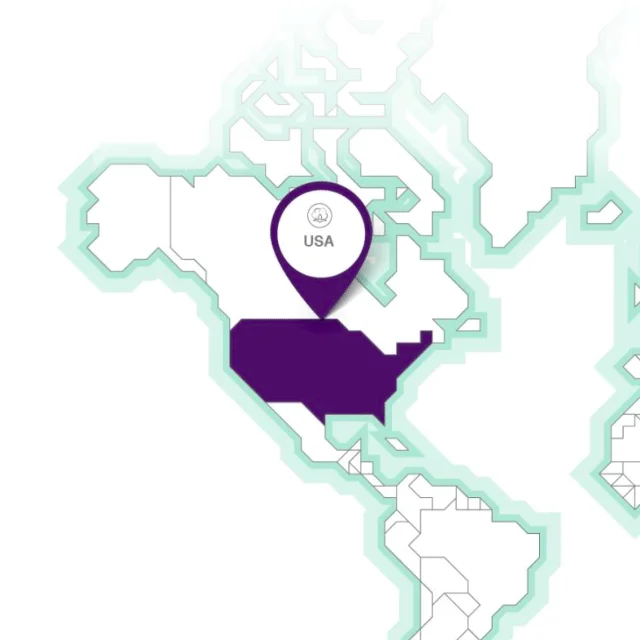
Better Cotton in the United States
The United States is the third-largest cotton-producing country in the world, and its cotton quality is prized across the global textile industry.
While American cotton farmers use advanced production methods, they still face sustainability challenges like herbicide resistance, soil erosion and regional irrigation water shortages.
In response to demand from our members, retailers, suppliers and interested farmer groups, we launched a Better Cotton programme in the United States in 2014. Since then, we have been working closely with the American cotton industry to grow the US Better Cotton supply chain.
Better Cotton Partners in the US
Our current Programme Partners in the United States include:
- Allenberg (Louis Dreyfus)
- Jess Smith & Sons
- Olam
- Plains Cotton Cooperative Association (PCCA)
- Quarterway Cotton Growers
- Staple Cotton Cooperative Association
- Viterra
We also work with local and national NGOs, universities and government agencies.
The US is a Better Cotton Standard Country
Find out what this means
Which regions grow Better Cotton in the US?
Cotton in the US is grown throughout the US Cotton Belt, an area that stretches from Virginia to California.
When is Better Cotton grown in the US?
Throughout most of the US, cotton is planted in April and May and harvested in October and November.
US Impact Report 2014-24
It has been over 10 years since we launched our Better Cotton programme in the United States, and we have since seen significant growth, alliance and progress across the country’s Cotton Belt.
Throughout our 10-Year US Impact Report, we share data insights from 2014-24 while contextualising the diverse landscape of cotton-growing regions, fellow initiatives, researchers and farmers contributing to cotton sustainability across the US. The report includes:
- Evidence of 10 years of fruitful network-building among partners, collaborators and producers
- National and regional context surrounding US cotton production
- Reporting on acreage, production, regenerative practice adoption, irrigation water use efficiency and use of inputs
- Details on our reduction in pesticide usage since 2020
- Better Cotton projects, including on-farm research collaborations and producer spotlights
- Where the US Programme is headed next
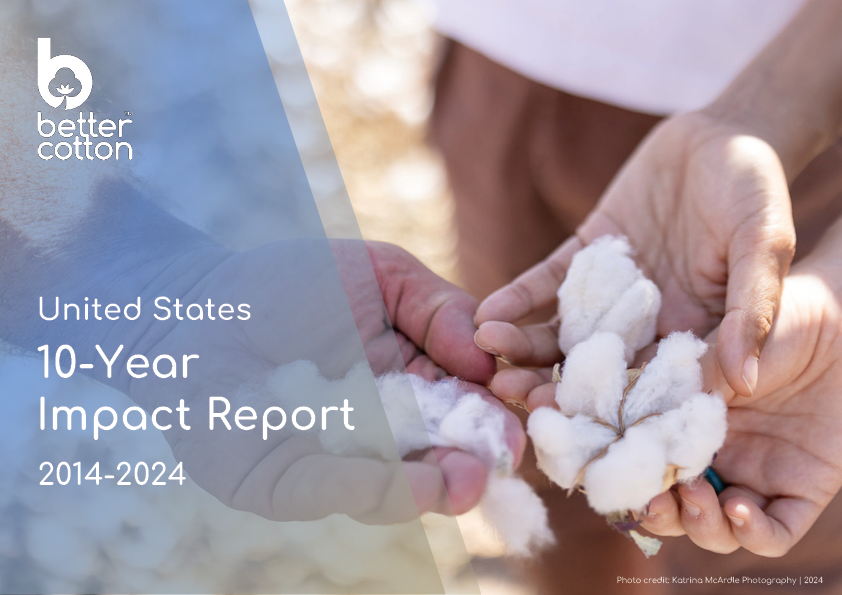
Sustainability challenges
Cotton in the US is grown throughout the US Cotton Belt, an area that stretches from North Carolina to California. In many parts of the Cotton Belt, farmers struggle to manage weeds that have developed resistance to common herbicides, making it necessary to use alternative herbicides and weed management techniques and/or herbicide rotations to reduce overall usage.
Extreme weather events are also impacting growers. California, known for its long-staple cotton varieties, has experienced a multi-year drought, making irrigation water both scarce and costly. In other regions like West Texas, water tables are falling, compelling farmers to invest in more efficient irrigation methods or transition to less water-intensive crops. Some Better Cotton Farmers are installing drip irrigation, which can reduce irrigation water needs by up to 50%.
Through our US Implementing Partners, we help farmers address these and other sustainability challenges to improve their performance and profitability.
We are proud to partner with Quarterway Cotton Growers in Plainview, Texas, who are working together to find innovative solutions and build regenerative farming systems. Thanks to the Soil Health Institute for sharing this video.
Find out more about the outcomes farmers are experiencing by participating in the Better Cotton programme in our latestAnnual Report
US Better Cotton Farmers Adopt Innovative Pest Management Techniques
In 2022, we started working with Dr Peter Ellsworth, Professor of Entomology and Extension IPM Specialist at the University of Arizona, and his team at the university’s Maricopa Agricultural Center (MAC) to sort through the biggest cotton pest issues and identify realistic solutions.
This season, the team at MAC is partnering with Ak-Chin Farms, a licensed Better Cotton Farm located a short drive from the centre in Arizona, to field-test the system. Plots have been established at the farm to compare the use of the tool versus traditional pest-scouting methods.
In August 2023, Ak-Chin Farms hosted over 40 pest control advisers, researchers, farmers and industry representatives to give them hands-on experience in scouting for pests and natural enemies, and using the predator count tool. To read more about the project and the trip, click here.
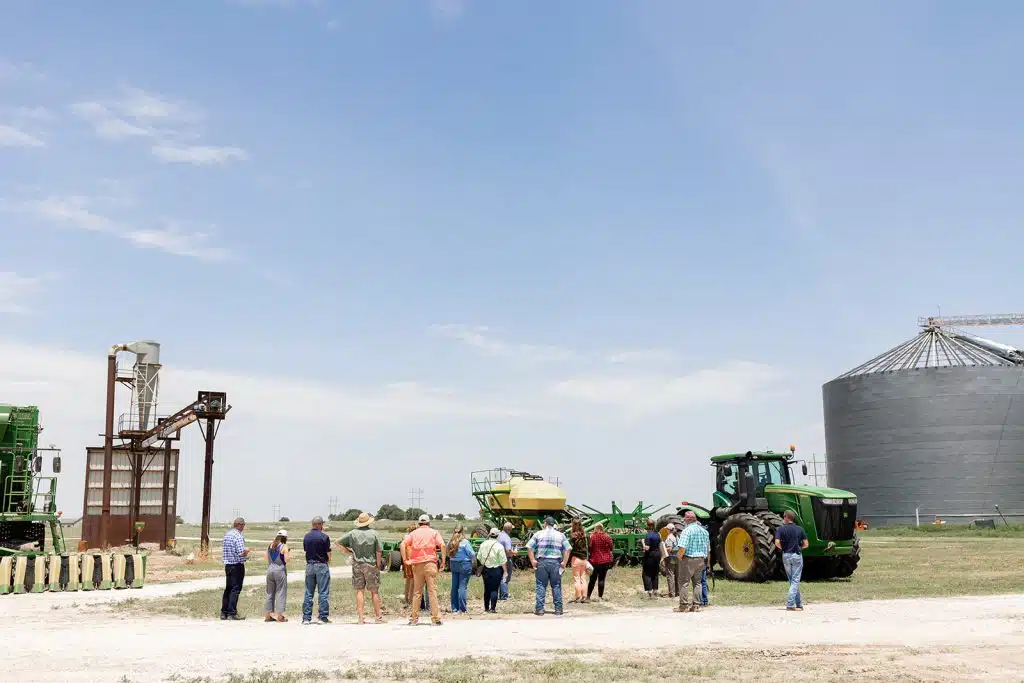
US Cotton Connections: Better Cotton & Quarterway Cotton Growers Field Trip
In July, the Better Cotton US team, Quarterway Cotton Growers, ECOM, and Soil Health Institute held a trip to the cotton fields of Plainview, Texas . Representatives from brands, mills, merchants, civil society, university extension services and supporting businesses joined Better Cotton growers in the field to learn more about sustainable and regenerative cotton production systems in West Texas. Representatives from ECOM also discussed their role as a merchant in the supply chain, highlighting their sustainability initiatives including a USDA Climate Smart Partnership with Quarterway.
To find out all about the trip, check out this blog.
North Carolina as a state is one of the larger adopters of cover crop use in the US, and across the entire country we are seeing a soil health movement. With cover crops, people are trying to look at a more holistic way of treating and using our soil as the valuable resource it is.
Get in touch
Contact our team via the contact form if you’d like to learn more, become a partner or you’re a farmer interested in farming Better Cotton.
